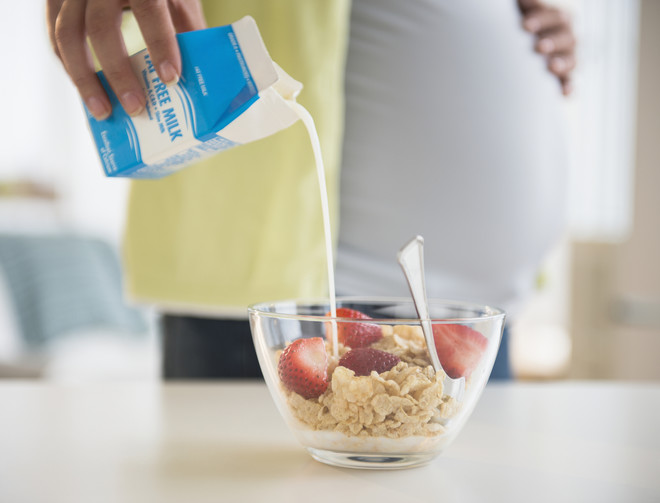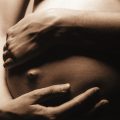Author Woman's Day, whose pregnancy is already behind, tells how to better adjust the diet in each of the three trimesters. So, let's look at the approximate diet of a future mother, depending on the trimester.
So, let's look at the approximate diet of a future mother, depending on the trimester.
First trimester
The most important thing for a future mother in the first three months isquality of products, as well as routine and discipline. It is important not to skip meals. Breakfast, lunch, light dinner and two light snacks must be present. Depending on your build, nature of work, individual characteristics, your daily diet should balance within 2000-2700 kcal. Although if in everyday life the approximate caloric content was less than this conditional norm, then stick to it. The emphasis is on proteins, because it is during this period that all the organs and systems of the baby are laid. Ideally, by the end of the first trimester, you should gain no more than 1-3 kg Photo: Getty images
Photo: Getty images
Second trimester
It is during this period that the energy valuedaily diet can be increased by 300-400 calories - depending again on your daily activity and existing weight gain. But it should not be increased at the expense of various harmful foods. The expectant mother should get more proteins, carbohydrates and fats in the form of meat, fish, cereals. However, it is better to cook them for breakfast or lunch, and for dinner eat dairy and plant foods (vegetables, kefir, etc.). During the day, especially if you experience hunger pangs or are drawn to something harmful, eat some fruit (an apple, banana or exotic ones are especially good, if you are not allergic to them) or 100 grams of dried fruit. In general, in the second trimester, it is better to eat the maximum amount of food in the first half of the day. Dinner should be as light as possible, since the baby has already increased significantly in size and begins to press on many internal organs, which interferes with the proper functioning of the digestive system, among other things. Sleeping with double the weight in your belly is a dubious pleasure. The emphasis is on calcium, since during this period the baby's skeletal system is actively forming. The optimal weight gain by the end of the second trimester is up to 6 kg Photo: Getty images
Photo: Getty images
Third trimester
Oddly enough, but the caloric content for this periodshould either be reduced if your daily activity has decreased, or left unchanged if you are trying to maintain your usual rhythm of life. However, doctors still recommend reducing either the volume of food or its energy value, since the growing uterus is already significantly pressing on the intestines, which is why discomfort often occurs in them. However, if you followed reasonable dietary rules in the first 6 months, then this fate will pass you by and you will not experience any problems with stool (which really darken the life of most pregnant women in the last 2 months, giving them an exhausted and stale look). In the third trimester, it makes sense to at least once a week leave yourself without dinner or eat something very, very light. The emphasis is again on vegetables, fruits, lean meat and seafood and the general quality of the food consumed. It is better to eat often and in small portions. It is better not to overload the stomach. It is also worth reducing water consumption. The optimal weight gain by the end of the third trimester is another 3–5 kg.









